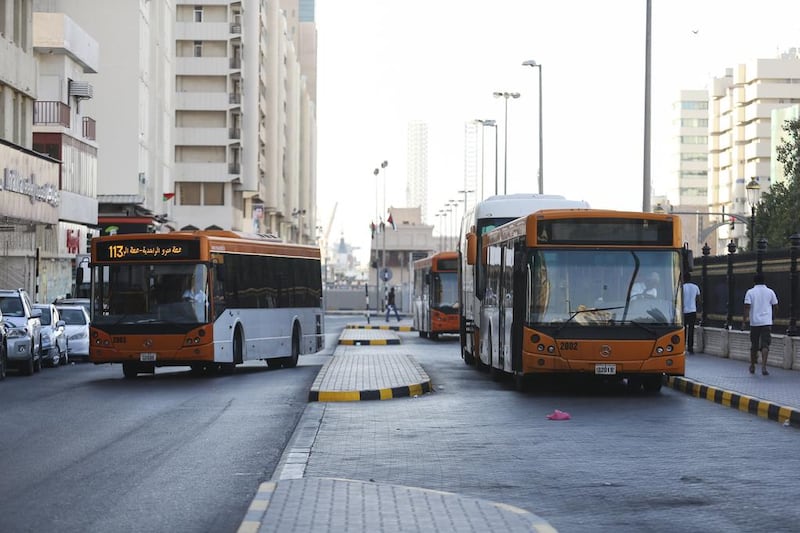SHARJAH // Walking around Rolla bus station, aside from buses, there is another constant: the sound of people calling out place names such as Deira, Al Quoz or even Mussaffah in Abu Dhabi.
The men are trying to get customers to ride in their illegal taxis, which appeal to low-income workers because of the lower fares they charge compared with registered cabs, and their speedy travel time.
A trip from Rolla bus station to Al Quoz, in Dubai, would cost about Dh120 in a regular taxi but, for Dh20 each, four men can share an unlicensed taxi direct to their destination.
A M, a 40-year-old Pakistani, has been using his private car as a taxi for 12 years.
“I do runs between the Rolla area in Sharjah to Deira and Al Quoz areas in Dubai,” he said.
He earns about Dh90 to Dh120 a day and not even the fear of large fines of up to Dh10,000 deters him.
“I have been caught few times, but it’s still a good business, and with time, you know who is an inspector and can hide from the authorities,” he said.
Rashid Al Nuaimi, head of the fines department at Sharjah RTA, said illegal cabbies had gone so far as to organise collection boxes among them, to collectively pay for fines.
“Each driver pays about Dh100 a month, which goes into savings and is used to pay for fines of the drivers, which makes it a lucrative business to the illegal operators,” he said.
“People using illegal taxis don’t know who the driver is, if he is licensed, or if the car is insured, which is a dangerous thing.”
Abdulhafiz Sadeek has been a middleman in the Rolla area for 10 years. He gets paid Dh10 by cabbies for every car-load of people he can find.
“I gather customers wanting to go to Dubai, and when I have four customers, I call the driver and he picks them up. I get my fee from him,” said the 32-year-old Pakistani. “This way, the driver is safe from the eyes of inspectors and I generate Dh60 to Dh70 from my work per day.”
Nabil Hafiz works in a shop at Rolla Square and uses illegal taxis to buy merchandise in Dubai. “It’s cheaper than a taxi, and faster than a bus. I typically pay for two seats on my way back to Sharjah because of the merchandise. The cheaper the overheads, the more the revenue,” Mr Hafiz said.
Near Rolla park, a 37-year-old resident of Abu Dhabi, is waiting for a fourth customer before he can take his illegal taxi to Mussaffah industrial area.
“The bus fare from Sharjah to the capital costs Dh30. I charge customers Dh35, from Sharjah to Mussaffah, which is slightly more but a lot faster and [more] comfortable,” he said.
“The main reason people use illegal taxis is for cheaper rides, and the option to get off at their exact destinations, rather than having to go to the bus station and taking another bus to their final destinations.”
Sharjah RTA director Abdulaziz Al Jarwan said since the beginning of the year, inspectors had issued 601 fines to people operating illegal taxis.
“We have seen a 98 per cent increase in the number of violations compared to last year,” he said. The director said that anyone caught operating an illegal taxi would be fined Dh5,000.
“If the driver is caught a second time, he will be fined Dh10,000,” he said.
tzriqat@thenational.ae






